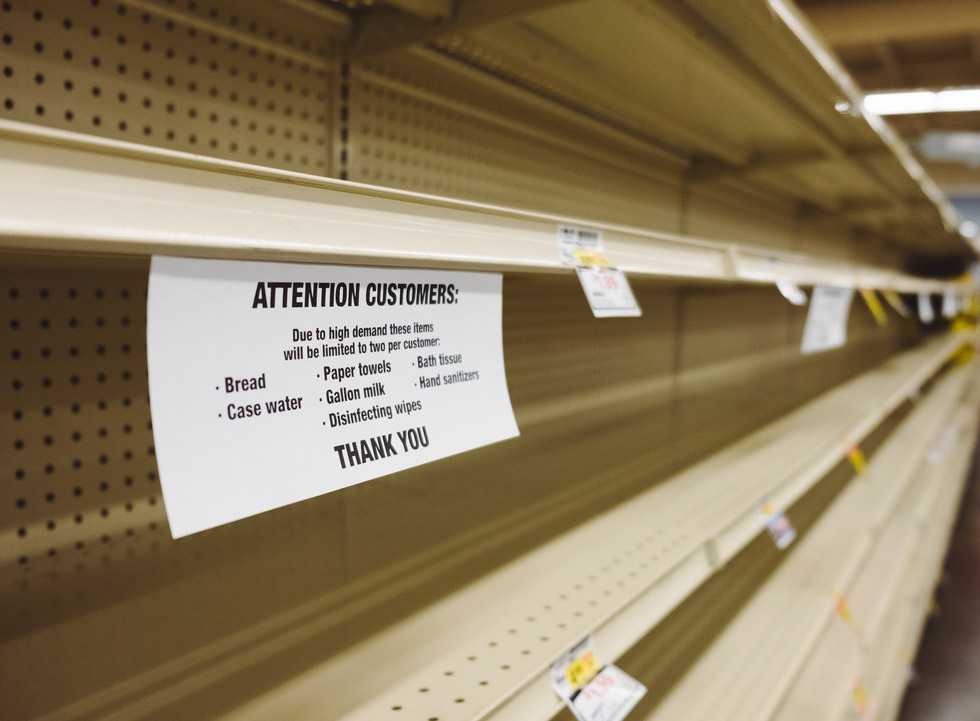When hospitals in a high-income country like Italy quickly became overwhelmed with COVID-19 patients last February and as tensions were mounting over a shortage of sanitary masks with neighboring European countries like France, many of us suddenly encountered what our comfortable lifestyle had kept from view: the challenge of resource insecurity. In the U.K. and United States, minor disruptions to the food supply-chain caused by the impact of the pandemic on farm laborers and meat-packing workers even raised the specter of the sudden advent of food shortages.
Even the most powerful economies have proved to be inadequately prepared. The pandemic has revealed how truly vulnerable humanity is, both on the public health and on the resource-management fronts. It has also brought into focus that resilience is a key element for each city, company, and country to be successful. The past few months have shown us, how indispensable careful accounting and tracking of our resources is for managing robust economies. This holds not only true for sanitary masks and gloves, but even more so for everything economies use from nature, particularly in our context of massive ecological overshoot.
The current wake-up call to humanity’s fragility is particularly poignant as we celebrate Earth Day’s 50th birthday. Undoubtedly, some gains were achieved over the last five decades, including bans on ozone-depleting and acid rain-causing substances. However, over the same time period, humanity’s overall demand has moved from just passing the one-planet mark in 1970 to now using 1.7 times Earth’s biocapacity. Clearly, we need to add an ecological fuel gauge to the dashboard of Spaceship Earth. The Ecological Footprint is one of the metrics that already exist to provide the necessary tracking of human demand on nature and of the ability for natural ecosystems to meet that demand.
Necessary compass
COVID-19 has made obvious that “we are in it together.” This is no kind-hearted ideology but straight biology. This means that justice, prosperity, public health, and ecological balance are not separate issues. All point to the reality that we are one biology.
The neglect of our biological dependence has become the Achilles’ heel of our modern existence. Continuously depleting our life-support systems, while not tracking how much we are taking, is creating more fragility – even courting disaster. Just like governments routinely track their economies’ capacity to produce value added through their GDP accounts, each country needs an ecological metric that tracks how much its economy demands from nature compared to its own ecosystems’ or the planet’s ecosystems’ capacity for biological regeneration.
COVID-19 is providing us with a brief climate and environmental reprieve. This is nothing to celebrate, however, as this reprieve was imposed upon us by disaster. So it comes with a significant amount of human suffering. More positively, it reminds us of what is possible when humanity acts together to reach a common goal. We already have the necessary tools to engineer a transformation by design towards ecological resource security, including the metrics to track our action. This is why we have started Footprint Data Foundation.
We have the power to build a world that thrives within the means of our planet. That’s what we like to focus on so we can celebrate the shift to sustainability over the next 50 Earth Days.
Authors: Dr. Mathis Wackernagel, President of Global Footprint Network, Oakland, California; Prof. em. Peter Victor, York University, Toronto, Canada; Prof. Bruno Oberle, former Head of the Swiss Ministry of Environment and chair of Footprint Data Foundation (FoDaFo), Zurich, Switzerland. FoDaFo is the new organization set up by York University and Global Footprint Network to take on the National Footprint and Biocapacity Accounts as its sole purpose. The goal is to provide the world with independent, transparent, robust national footprint and biocapacity results.



